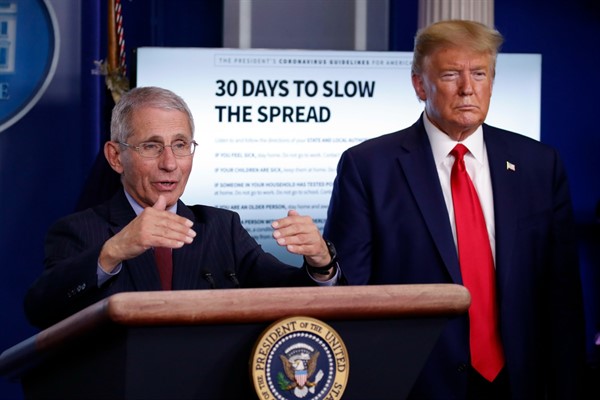In this week’s editors’ discussion on Trend Lines, WPR’s Judah Grunstein and Freddy Deknatel talk about the prominent role played by data in coverage of and reactions to the coronavirus pandemic. They also discuss the implications of inaccuracies—both intentional and unintentional—and disinformation in the crisis, as well as governments’ use of public diplomacy for strategic advantage.
If you like what you hear on Trend Lines and what you’ve read on WPR, you can sign up for our free newsletter to get our uncompromising analysis delivered straight to your inbox. The newsletter offers a free preview article every day of the week, plus three more complimentary articles in our weekly roundup every Friday. Sign up here. Then subscribe.
Listen:
Download: MP3
Subscribe: iTunes | RSS | Spotify
Relevant Articles on WPR:
Why China’s Coronavirus Data Should Be Viewed With Skepticism
Beware of China’s Coronavirus Propaganda
Trump Is Playacting at Leadership as the Coronavirus Surges in the U.S.
Internal Divisions, in Kabul and Within the Taliban, Hinder Afghan Peace Talks
Has the World Learned the Lessons of the 2015 Refugee Crisis?
Trend Lines is produced and edited by Peter Dörrie, a freelance journalist and analyst focusing on security and resource politics in Africa. You can follow him on Twitter at @peterdoerrie.
To send feedback or questions, email us at podcast@worldpoliticsreview.com.

